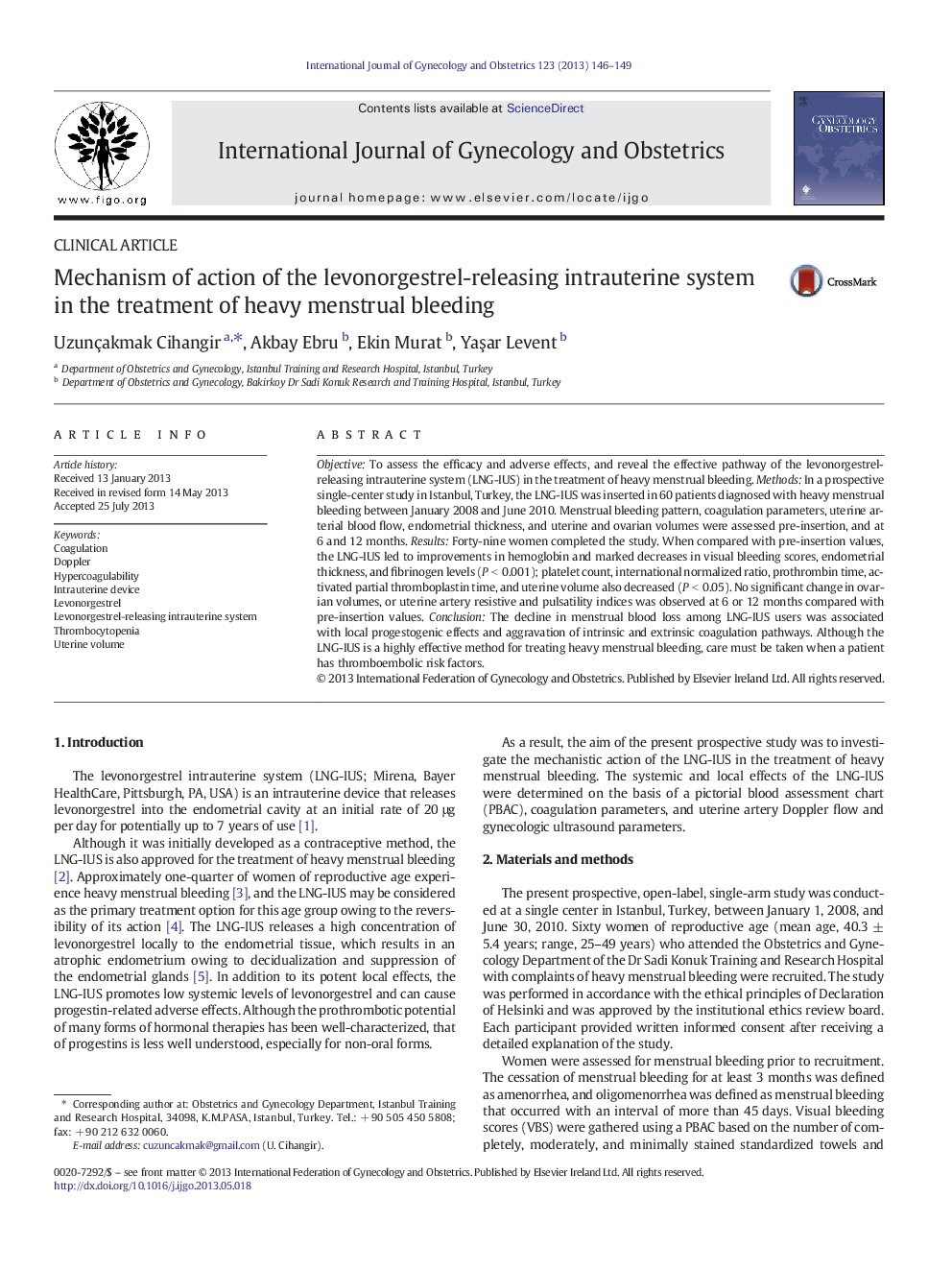| Article ID | Journal | Published Year | Pages | File Type |
|---|---|---|---|---|
| 3951003 | International Journal of Gynecology & Obstetrics | 2013 | 4 Pages |
ObjectiveTo assess the efficacy and adverse effects, and reveal the effective pathway of the levonorgestrel-releasing intrauterine system (LNG-IUS) in the treatment of heavy menstrual bleeding.MethodsIn a prospective single-center study in Istanbul, Turkey, the LNG-IUS was inserted in 60 patients diagnosed with heavy menstrual bleeding between January 2008 and June 2010. Menstrual bleeding pattern, coagulation parameters, uterine arterial blood flow, endometrial thickness, and uterine and ovarian volumes were assessed pre-insertion, and at 6 and 12 months.ResultsForty-nine women completed the study. When compared with pre-insertion values, the LNG-IUS led to improvements in hemoglobin and marked decreases in visual bleeding scores, endometrial thickness, and fibrinogen levels (P < 0.001); platelet count, international normalized ratio, prothrombin time, activated partial thromboplastin time, and uterine volume also decreased (P < 0.05). No significant change in ovarian volumes, or uterine artery resistive and pulsatility indices was observed at 6 or 12 months compared with pre-insertion values.ConclusionThe decline in menstrual blood loss among LNG-IUS users was associated with local progestogenic effects and aggravation of intrinsic and extrinsic coagulation pathways. Although the LNG-IUS is a highly effective method for treating heavy menstrual bleeding, care must be taken when a patient has thromboembolic risk factors.
